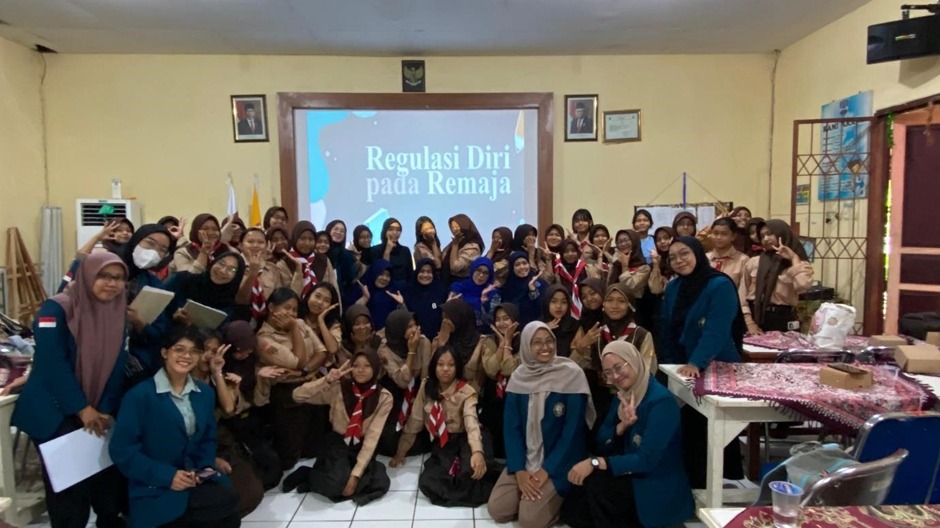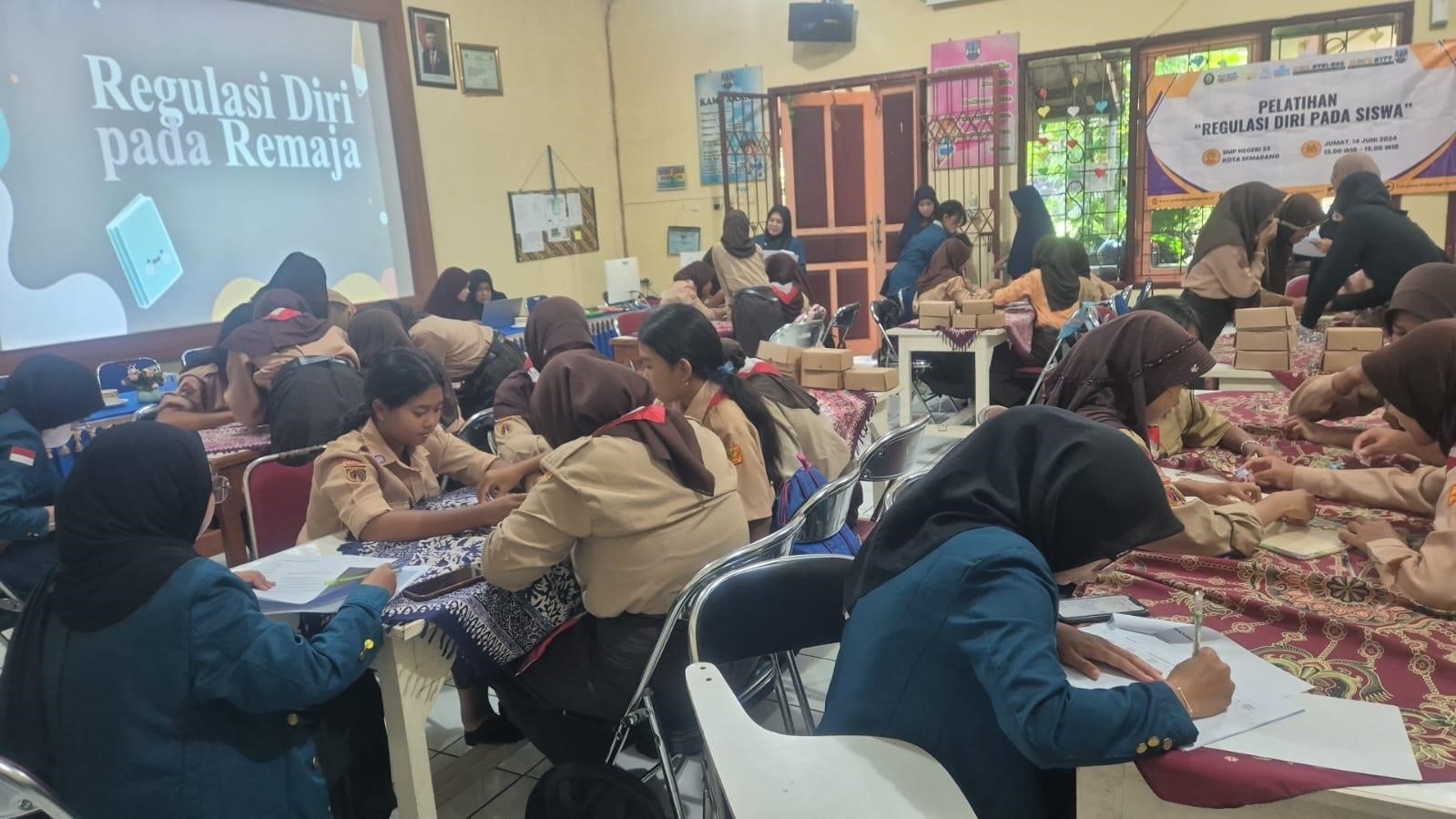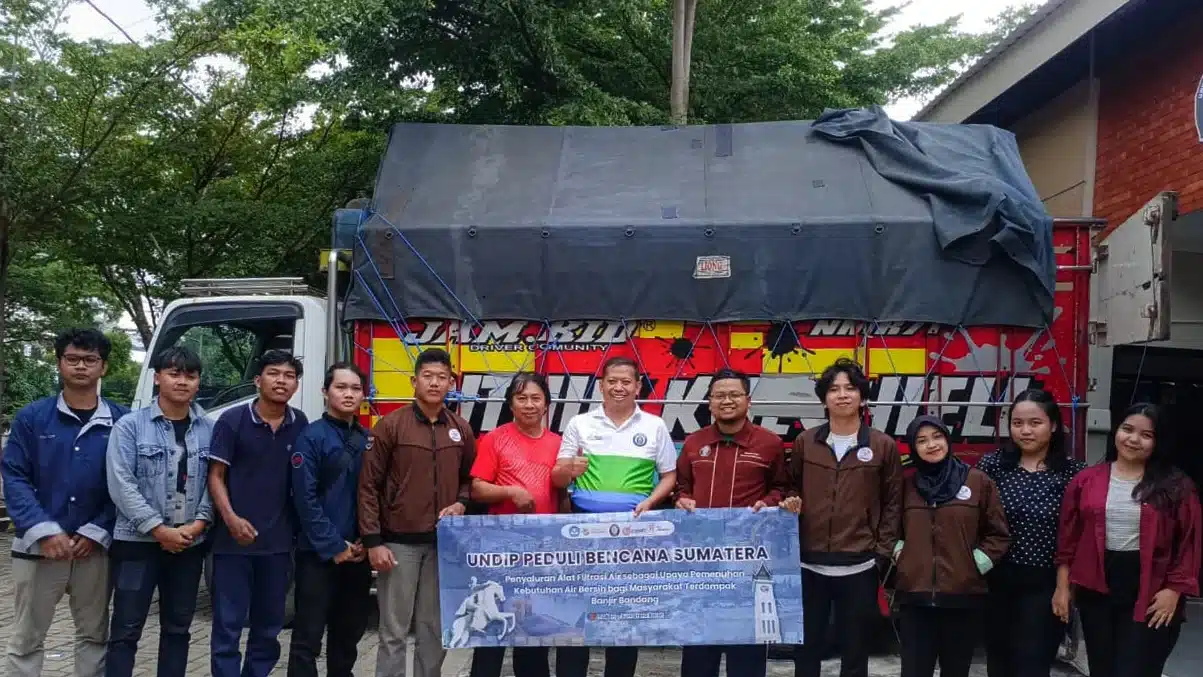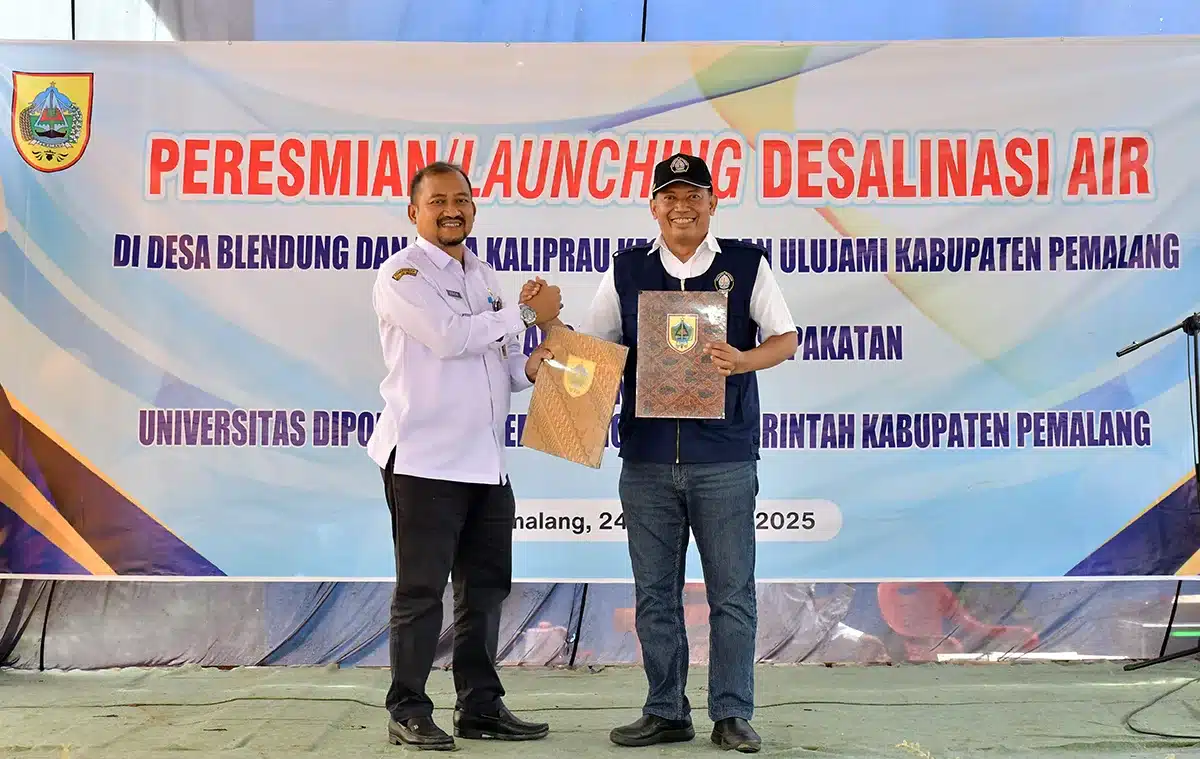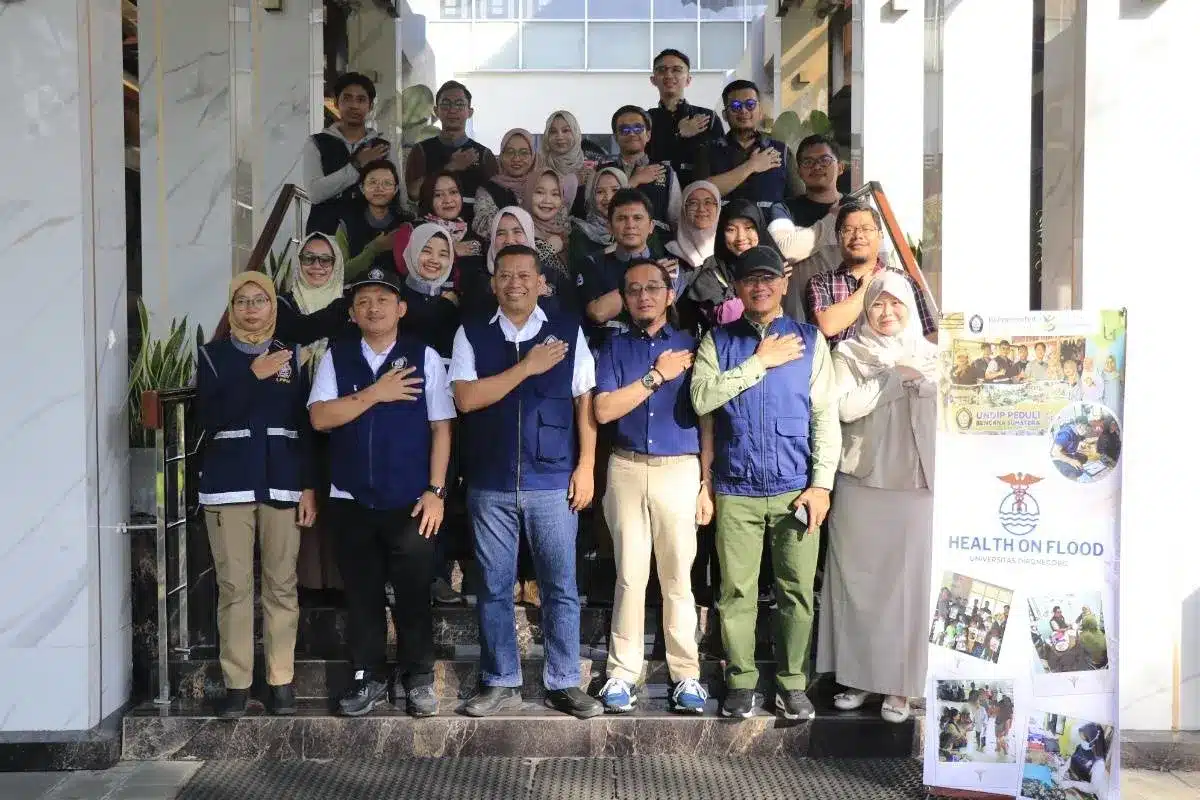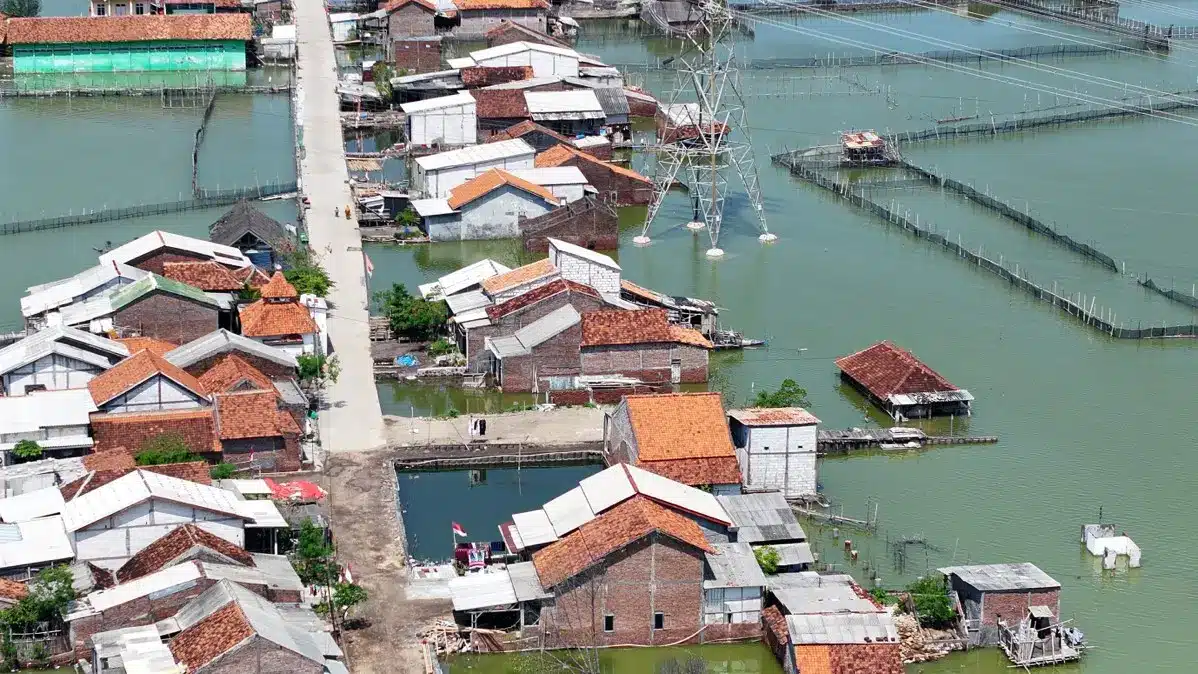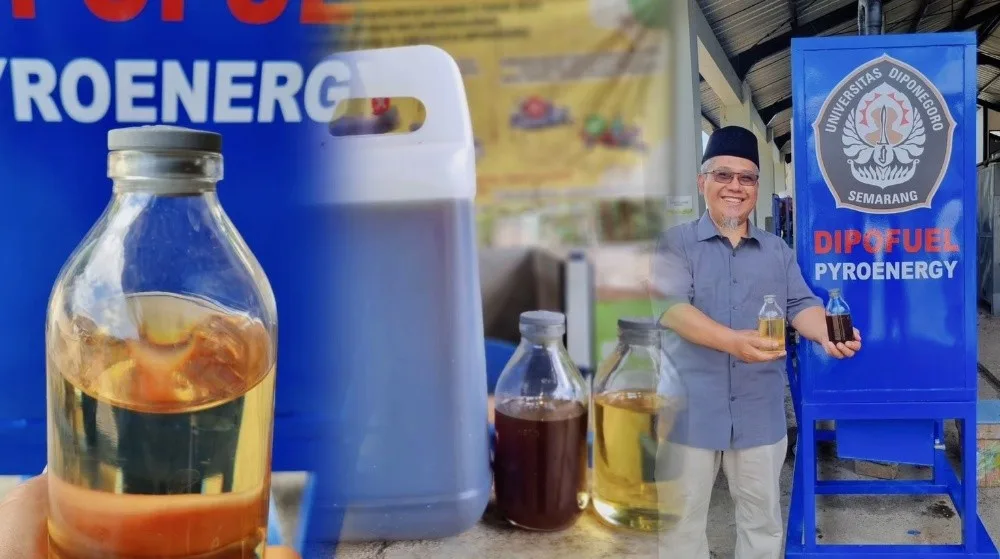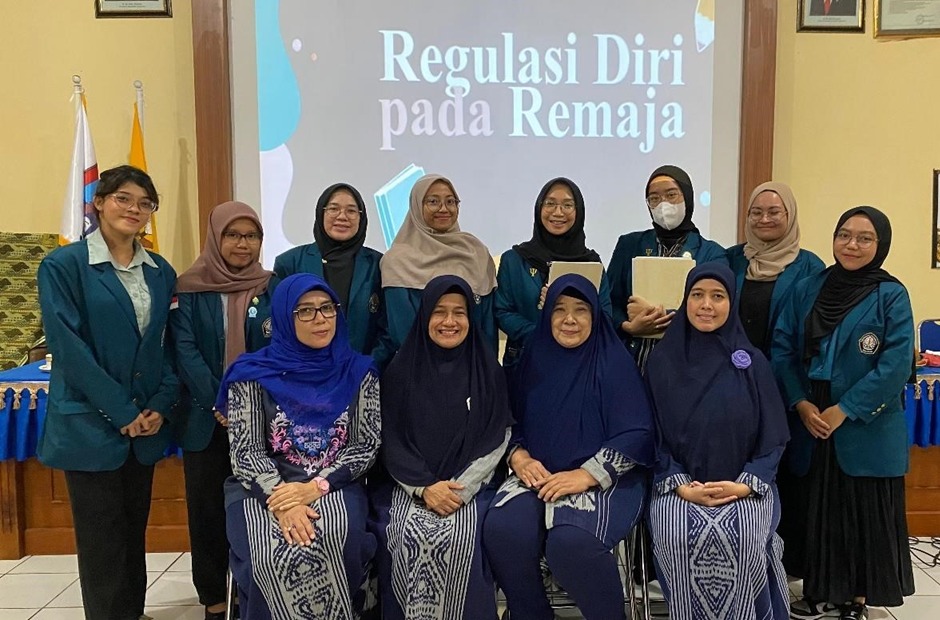As a form of responsibility in carrying out the Tri Dharma of Higher Education, the Faculty of Psychology at Diponegoro University conducted a community service activity at SMP Negeri 33 Semarang on August 21, 2024.
The community service activity was organized for junior high school students with the theme “Self-Regulation Training for Problem-Solving Engagement through Puzzle Games.” This service aims to train students in self-regulation and practical problem-solving, which is crucial for planning in school, society, and career choices.
Self-regulation is the process by which individuals manage their actions and achievements, set targets, evaluate their success in reaching those targets, and reward themselves once the targets are met. Self-regulation is an essential factor in planning, as it determines the success of the expected outcomes.
Junior high school (SMP) is a stage where individuals enter adolescence. During adolescence, individuals face numerous changes. As we know, adolescence is a transitional period filled with stressors. Hall (in Santrock, 2012) argued that during adolescence, individuals experience a “storm and stress” phase, manifested in increased emotional problems such as anxiety, depression, anger, behavioral issues, hyperactivity, and peer relationship problems.
Junior high school students who are undergoing various changes due to their adolescent phase face developmental tasks and challenges as individuals, family members, and community members. Self-regulation is essential to ensure their success in meeting these developmental tasks. Students who can self-regulate are assumed to have good problem-solving skills. However, not all adolescents understand the importance of self-regulation, especially in learning, to achieve well-planned outcomes. Many students only achieve mediocre results due to their lackluster approach to education.
The training lasted 90 minutes, starting with a brief presentation, followed by group tasks, and concluded with a post-test. During the presentation, Dra. Darosy Endah Hyoscyamina, M.Pd., explained the benefits of self-regulation to the students.
“Students or adolescents with good self-regulation will become more resilient, less likely to give up, and won’t be part of the ‘strawberry generation,'” said Darosy.
The second session was led by Endah Mujiasih, S.Psi., M.Si., who assigned each group the task of solving puzzles. The activity ended with students filling out a self-regulation questionnaire at SMP Negeri 33 Semarang.
This activity was carried out by the Community Service Team from the Faculty of Psychology at Diponegoro University, consisting of Dra. Darosy Endah Hyoscyamina, M.Pd., Dr. Dinie Ratri Desiningrum, S.Psi., Dr. Yeniar Indriana, S.Psi., M.S., Psychologist, M.Si, Endah Mujiasih, S.Psi., M.Si, and supported by undergraduate and graduate students, including Oktoria, S.Psi., S.S., Shafa Kirana Dewani, S.Psi., Andrea Neysa Ardelia, and Melia Khoirun Ni’mah.
The event ran smoothly, and the students showed high enthusiasm. They participated interactively during the material presentation and eagerly worked on the assigned tasks. The students also filled out the questionnaires earnestly.
The Principal of SMP Negeri 33 Semarang, along with the Community Service Team from the Faculty of Psychology at Diponegoro University, hopes that similar activities can be held regularly at SMPN 33 Semarang and extended to other schools. The rapid advancement of technology, which significantly influences adolescent life, makes self-regulation training essential to help them face the growing challenges as they prepare for Indonesia’s Golden Generation in 2045. (Oktoria)
